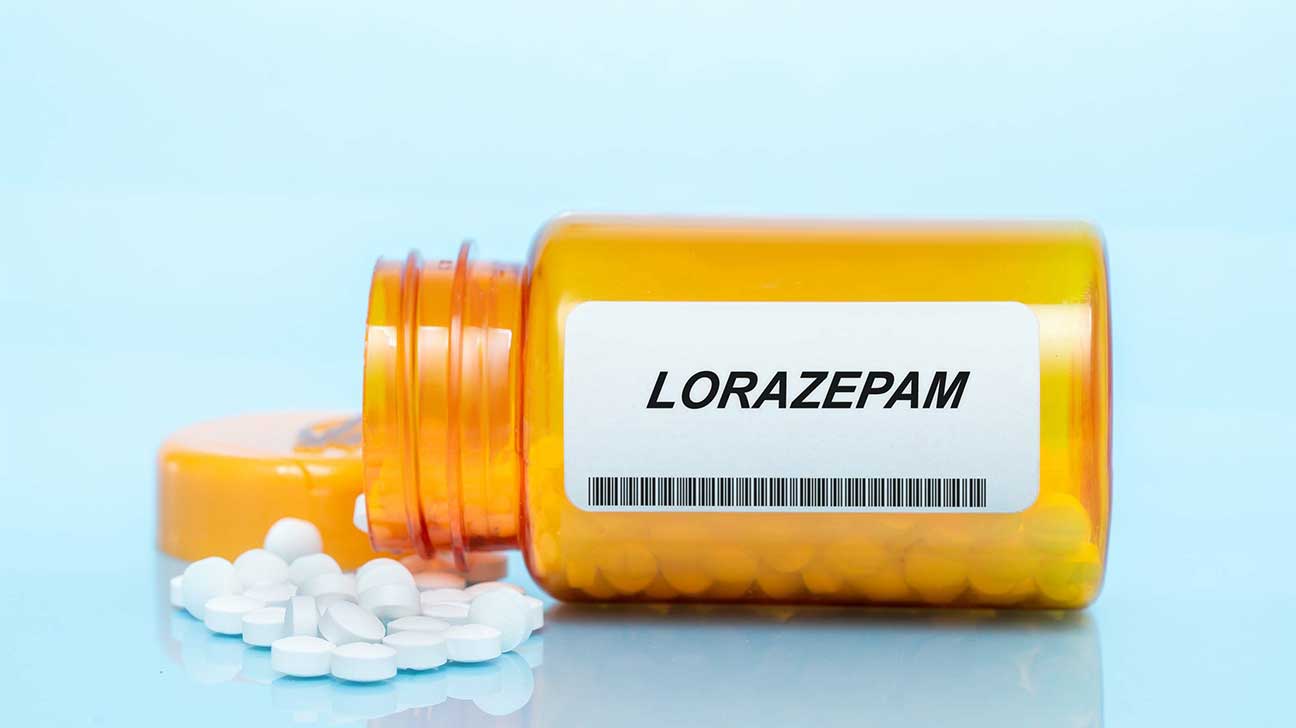
Ativan, also known by the generic name lorazepam, is a benzodiazepine and anxiolytic that affects your central nervous system (CNS).
Lorazepam is FDA-approved to treat mental health conditions like anxiety disorders, anxiety symptoms, panic attacks, and panic disorders. It is also sometimes used alongside antidepressants.
On the other hand, lorazepam is sometimes used to control seizures due to epilepsy, as it is an anticonvulsant and has sedative effects.
The medication works by enhancing the effects of the neurotransmitter gamma-aminobutyric acid (GABA), which is a chemical your brain naturally releases in times of distress.
However, the use of benzodiazepines can quickly lead to the development of tolerance for the medication. Specifically, tolerance to benzos can build as quickly as within a few days to weeks.
Factors That Lead To Ativan Tolerance
Ativan tolerance can build up quickly, and there are several additional factors that can contribute to developing a tolerance.
High Doses Of Lorazepam
One factor that can lead to Ativan tolerance is taking the medication in high doses. It’s always best to take prescription drugs in low doses as they provide you relief.
If you take lorazepam in higher doses from the start, your brain and body will be able to adjust to the concentration quickly leading to a much higher tolerance.
Other risks of taking unsafe doses of lorazepam include development of addiction to the drug, as well as overdose.
GABA Receptors
Ativan works by enhancing the excitability of GABA in your brain. As a neurotransmitter, GABA has specific receptors it attaches to in your brain.
When you use lorazepam, these benzodiazepine receptors can become used to the increased GABA effects, leading to a higher tolerance and the need for larger doses.
Taking Ativan Over A Long Period Of Time
Even though you can develop a tolerance to Ativan with short-term use, long-term treatment with the medication only exacerbates this issue.
As your brain is continuously exposed to the drug with long-term use, it can continue to build up a tolerance, leading you to need to take higher and higher doses.
Short Half-Life Of Benzodiazepines
Another issue with benzodiazepines that can lend to developing a tolerance is the fact that it has a short half-life.
The half-life of a medication is how long it takes for half the dosage to be metabolized. In other words, the half-life of a drug can determine how long you feel its side effects.
Considering the fact that benzos have a fairly short half-life, you may feel inclined to take more frequent doses, which can lead to a higher tolerance over time.
Risks Of Ativan Tolerance
In addition to the frustration Ativan tolerance can cause, it can also contribute to a few health risks.
Physical Dependence
First, as your tolerance to Ativan continues to increase and you take higher doses of the medication, your body may eventually develop drug dependence.
Physical dependence on Ativan and other benzodiazepines is common with long-term use and can make it difficult to stop taking the drugs.
Tolerance To Anticonvulsant Effects
Another health issue that can occur with benzodiazepine tolerance is tolerance to the effects of the medication.
Specifically, you may find that the anticonvulsant properties of Ativan are reduced once your tolerance is high.
This can be dangerous if the drug is being taken for conditions like epilepsy. If this is an issue you encounter, be sure to follow up with your doctor.
High Ativan Tolerance May Lead To Addiction And Withdrawal
Building a tolerance to Ativan can lead to physical dependence on the drug.
However, it’s important to note that this is possible with all kinds of benzodiazepines. Other examples of this drug class include diazepam (Valium), clonazepam (Klonopin), alprazolam (Xanax), triazolam (Halcion), and chlordiazepoxide.
Once you’ve developed a physical dependence on the effects of benzodiazepines, you’re at a higher risk of developing an addiction and suffering from withdrawal syndrome.
As physical dependence can lead to benzodiazepine withdrawal symptoms when you stop taking the drug, many people fall into addiction to avoid these adverse physical symptoms.
Addiction can also be dangerous when you combine substances. When it comes to benzodiazepines, it can be particularly dangerous to mix them with opioids.
Specifically, the two medications combined can lead to suppressed breathing, impairment of mental function, low blood pressure and extreme drowsiness, which can be fatal.
Treatment Programs For Benzodiazepine Abuse
Benzodiazepine addiction is a potentially life-threatening condition that often requires the help of a healthcare professional. Seeking out a psychiatry professional may also be beneficial.
When it comes to dealing with detox, withdrawal effects, and cravings, one of the best ways to start the discontinuation of your medication is by finding a qualified treatment center.
Luckily, AddictionResource.net can help you in doing just that. We can help you narrow your search to your state, city, or kind of drug abuse treatment.
Substance use disorder treatment is available for all demographics and we can help you find facilities that are non-religious, dedicated to women only, LGBTQ-friendly, Spanish-speaking, Christian, and more.
Find A Drug And Alcohol Treatment Program
If you’re tired of substance abuse controlling your life, call our helpline at AddictionResource.net today. We can connect you to the best treatment options in your area.
Addiction Resource aims to provide only the most current, accurate information in regards to addiction and addiction treatment, which means we only reference the most credible sources available.
These include peer-reviewed journals, government entities and academic institutions, and leaders in addiction healthcare and advocacy. Learn more about how we safeguard our content by viewing our editorial policy.
- Mayo Clinic — Lorazepam (Oral Route)
https://www.mayoclinic.org/drugs-supplements/lorazepam-oral-route/description/drg-20072296 - U.S. National Library of Medicine: MedlinePlus — Lorazepam
https://medlineplus.gov/druginfo/meds/a682053.html - National Alliance on Mental Illness (NAMI) — Lorazepam (Ativan)
https://www.nami.org/About-Mental-Illness/Treatments/Mental-Health-Medications/Types-of-Medication/Lorazepam-(Ativan)


